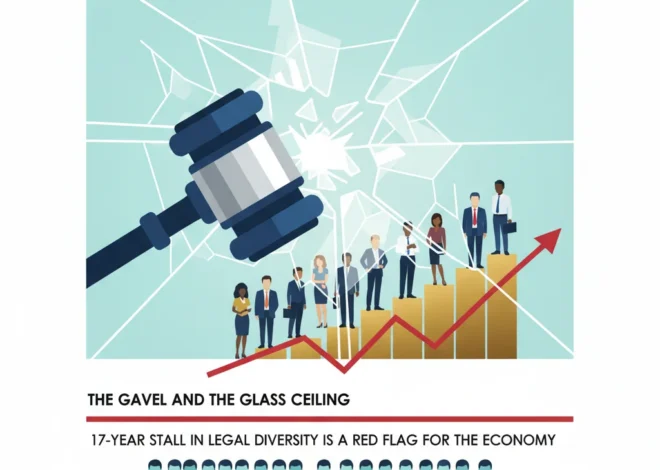
The Battle for HSBC’s Throne: Why the Next Chair Will Define a Decade of Global Banking
A Heavy Crown: The High-Stakes Search for HSBC’s Next Leader
In the hallowed halls of global finance, few positions carry the weight and complexity of the chairmanship of HSBC. It’s more than a title; it’s a role that demands the deftness of a diplomat, the vision of a strategist, and the resilience of a seasoned banker. As the current chair, Mark Tucker, prepares to step down in 2025, a quiet but intense battle is reportedly brewing within the bank’s board. The central question is not just *who* will lead, but *what kind* of leader HSBC needs to navigate the turbulent waters of a fractured global economy. According to a report from the Financial Times, the board is at odds, torn between the stability of an internal candidate and the fresh perspective of an external hire.
This is no ordinary corporate succession. HSBC, with its unique “East-meets-West” identity, sits at the epicenter of geopolitical and economic tensions between China and the Western world. Its fortunes are inextricably linked to the prosperity of Asia, particularly Hong Kong, which generates the lion’s share of its profits. The next chair will not only steer a $150 billion banking behemoth but will also become a key figure in managing one of the most delicate balancing acts in modern business. The decision will send a powerful signal to the stock market, regulators, and governments worldwide about the future direction of the bank and its strategy for growth in an era of profound uncertainty.
The Two Paths: A Tug-of-War Between Continuity and Change
The division on the board crystallizes into two competing philosophies, each with its own compelling logic and significant risks. This debate gets to the heart of a fundamental question facing many legacy institutions in the rapidly evolving world of finance: should you trust the hand that knows the ship, or bring in a new captain with a different map?
The Case for the Insider: The Continuity Candidate
At the center of the internal candidate discussion is the current CEO, Noel Quinn. Proponents of his potential elevation argue that he offers unparalleled stability and deep institutional knowledge. Quinn has been the architect of HSBC’s much-lauded “pivot to Asia,” a strategy focused on shedding underperforming Western assets to double down on high-growth Asian markets. He has successfully navigated the bank through a complex restructuring, weathered the activist demands of major shareholder Ping An, and delivered strong returns.
Appointing him chair would ensure strategic continuity, rewarding a CEO who has demonstrably steadied the ship. This CEO-to-chair pipeline is common in the United States, seen as a way to retain valuable leadership experience. However, in the UK, the regulatory landscape is different. The Prudential Regulation Authority (PRA) generally discourages this move, favoring a clear separation of powers to ensure robust corporate governance and prevent the concentration of influence. This regulatory hurdle, as noted by the Financial Times, is a significant complication for the pro-Quinn camp.
The Case for the Outsider: The Change Agent
On the other side of the debate is the call for an external candidate. The argument here is that a fresh pair of eyes is essential for an institution of HSBC’s size and complexity. An outsider can challenge ingrained orthodoxies, bring new skills and networks, and provide the objective oversight that UK governance standards champion. This is particularly crucial for a bank that has faced its share of regulatory and strategic challenges over the years.
The search, led by senior independent director Irene Lee, has reportedly considered high-profile names from the world of banking. Jean Pierre Mustier, the former chief executive of UniCredit, is one such name mentioned. An external hire, especially one with a different background, could inject new energy into the bank’s approach to everything from financial technology and fintech innovation to risk management in a volatile geopolitical climate. The risk, of course, is that an outsider would face a steep learning curve in understanding HSBC’s sprawling global operations and its unique political tightrope.
Echoes of '97: Is Labour Repeating Blair's Greatest Economic Gamble?
Comparing the Archetypes: Insider vs. Outsider
To better understand the strategic trade-offs the HSBC board is weighing, it’s helpful to compare the archetypal profiles of an internal versus an external candidate. This decision has profound implications for the bank’s strategy, governance, and market perception.
| Attribute | The Insider Candidate (e.g., Noel Quinn) | The Outsider Candidate (e.g., Jean Pierre Mustier) |
|---|---|---|
| Key Strengths | Deep institutional knowledge, strategic continuity, proven track record within the bank, lower integration risk. | Fresh perspective, objectivity, ability to challenge the status quo, potentially stronger external networks. |
| Potential Risks | Risk of groupthink, potential for complacency, may perpetuate existing weaknesses. | Steep learning curve, potential for cultural clashes, risk of strategic disruption. |
| Regulatory Hurdles | Significant scrutiny from the UK’s PRA, which discourages the CEO-to-chair move. | Fewer inherent regulatory hurdles, aligning with UK corporate governance best practices. |
| Asia Expertise | Proven experience via the “pivot to Asia” strategy, deep understanding of the bank’s Hong Kong operations. | Variable; depends heavily on the specific candidate’s background. May lack the specific nuance of HSBC’s position. |
| Stock Market Perception | Likely to be seen as a safe, stable choice, potentially calming investor nerves in the short term. | Could create short-term uncertainty but signal a commitment to bold transformation and improved governance. |
The Geopolitical Minefield: More Than Just Banking
The core of HSBC’s challenge—and the reason this succession is so critical—lies beyond traditional economics. The bank is a proxy for the global economy’s shifting plates. Its historical British roots and London headquarters place it firmly in the Western camp, yet its profitability is overwhelmingly driven by Asia. This duality forces its leadership to perform a constant, high-wire act.
The chair must be able to hold credible conversations in Beijing, London, and Washington, often about conflicting demands. For instance, the bank has faced pressure from UK and US lawmakers over its operations in Hong Kong, while simultaneously needing to comply with local laws and regulations dictated by Beijing. According to the Financial Times, this requires a chair with exceptional political sensitivity (source). Any misstep can have enormous consequences, impacting everything from market access to the bank’s stock price.
This geopolitical reality elevates the importance of “Asia knowledge” from a desirable trait to a non-negotiable requirement. It’s not just about understanding the region’s markets; it’s about grasping the subtle cultural and political currents that determine success or failure. This is why the board’s debate is so fierce: they are not just hiring a banker, they are appointing a global statesman.
The Corporate Handshake: How Swiss Business Leaders Brokered a Landmark US Tariff Reduction
Implications for Investors and the Future of Finance
For those involved in investing and trading, the outcome of this leadership race is a crucial indicator. The chosen candidate will signal the board’s priorities for the next decade:
- A vote for an insider like Quinn would suggest a focus on execution and a continuation of the current strategy. Investors might interpret this as a lower-risk option, prioritizing stable returns and a continued focus on cost discipline and the Asian pivot.
- A vote for a high-profile outsider would indicate an appetite for change. This could mean a strategic review, a renewed focus on technology and innovation (perhaps accelerating the bank’s fintech and financial technology initiatives), or a more aggressive approach to navigating the geopolitical landscape. This could introduce more volatility but also potentially unlock new avenues for growth.
Furthermore, the decision comes at a time when the entire banking sector is being disrupted. The rise of agile fintech competitors, the potential of blockchain technology, and changing customer expectations are forcing traditional banks to evolve. While HSBC is a giant, it is not immune to these forces. An outsider with a background in technology or a more innovative area of finance could be seen as a necessary move to prepare HSBC for the future, even if it’s not the focus of the current debate.
The 0 Million Handshake: Decoding Goldman Sachs' Record-Breaking EA Deal
Conclusion: A Bellwether for Global Banking
The succession of Mark Tucker is far more than a routine changing of the guard. It is a referendum on the future of HSBC and, in many ways, a bellwether for the entire global banking industry. The board’s choice will be a definitive statement on how a legacy financial institution should be led in an age of geopolitical rivalry and technological disruption.
Will they choose the steady hand of the insider, who knows every cog in the machine, or the fresh vision of the outsider, who might redesign the machine entirely? The answer will have ripple effects across the global economy, influencing investor confidence, regulatory approaches, and the very definition of what it means to be a global bank. As the search continues, the world of finance, from individual investors to institutional giants, will be watching with bated breath.


